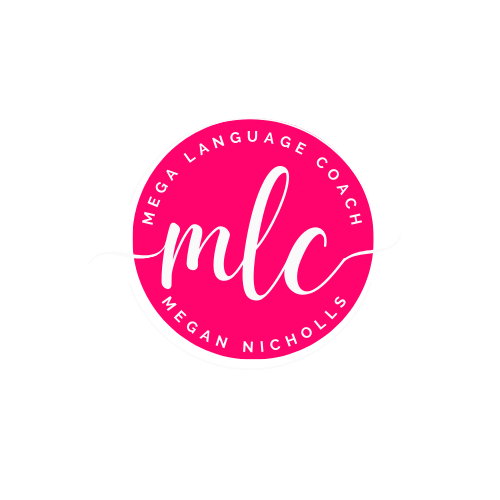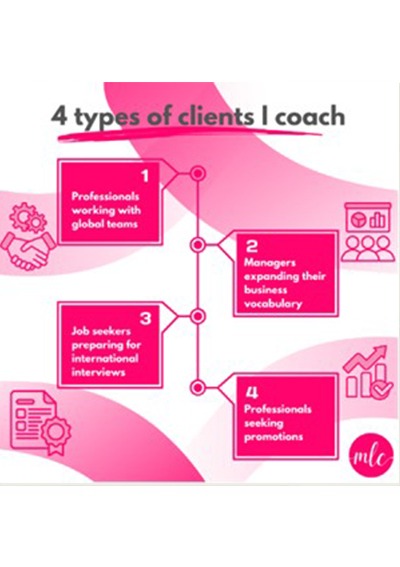Learning English for work isn’t one-size-fits-all. Over time, I’ve noticed my clients tend to fall into four clear categories — each with their own goals, challenges, and reasons for wanting to improve their English. Whether you’re navigating global teams, leading a department, preparing for interviews, or chasing a promotion, recognising which type you are can help you focus your learning.
Here’s a light-hearted look at the four types of professionals I coach, maybe you’ll spot yourself.
1. The global team player: juggling languages like a pro
If you work in a multinational team, you probably know the feeling: half the meeting is in English, the other half in various accents and dialects that sometimes sound like a completely different language. You’re ready to speak beyond the basics. You want to learn English for global teams, not just to follow along but to really join in, share your ideas clearly, respond naturally, and maybe even crack a joke without everyone Googling what you said.
Common challenges:
- Understanding different accents and speeds of speech
- Feeling hesitant to speak up for fear of making mistakes
- Struggling with idioms or cultural references that don’t translate well
How I help:
We practise real-life meeting phrases, polite ways to ask for clarification, and vocabulary that fits your industry. Plus, we work on pronunciation so your voice stands out for the right reasons, not because you sound like a robot or a confused tourist.
2. The vocabulary-expanding manager: ready to sound the part
Managers tend to know exactly what they want to say, but sometimes the English words don’t come easily, or worse, you use the wrong word and the meaning gets lost. This client wants to learn English for managers: sharper vocabulary, clearer instructions, and language that inspires confidence in the team.
Common challenges:
- Finding the right words to express complex ideas
- Avoiding common false friends or confusing terms
- Using professional phrases without sounding unnatural or rehearsed
How I help:
We build your business vocabulary and idiomatic expressions tailored to your field. We also practise how to present ideas clearly and confidently, so when you speak, people listen, and take notes.
3. The ambitious job seeker: nervous but determined
Applying for a new job in English can feel like preparing for a language marathon. This client wants to learn English for job interviews, to answer tricky questions smoothly, sound professional, and maybe throw in a little charm.
Common challenges:
- Feeling stressed and forgetting rehearsed answers
- Struggling with interview-specific vocabulary and phrases
- Managing pronunciation and intonation under pressure
How I help:
We prepare answers to common interview questions, practise role-play to build fluency and calm nerves, and improve your pronunciation so you’re understood clearly. You’ll also learn how to tell your story in a way that feels natural, no rehearsed robot speeches just dream job vibes.
4. The promotion chaser: aiming higher and speaking up
This client is already successful but knows that better English skills could open new doors and want to improve Business English. They want to learn English for professionals seeking promotions, to express ideas more clearly in meetings, write persuasive emails, and sound confident when leading projects.
Common challenges:
- Struggling to express complex ideas clearly and concisely
- Lack of confidence in formal meetings or presentations
- Writing emails and reports that sound professional and persuasive
How I help:
We focus on confident communication, including negotiation language and presentation skills. You’ll practise real work scenarios and get feedback on tone and style. Soon, you’ll be the one setting the agenda, and maybe even leading the promotion conversation.
Why learning English is different for everyone
Every professional has unique goals and challenges when it comes to English. The secret to making progress isn’t just about grammar or vocabulary, it’s about learning the language you actually use in your career.
Whether you want to learn English for global teams, sharpen your managerial vocabulary, prepare for interviews, or get ready for a promotion, knowing your type can help you focus on what really matters.
So, which type are you? Or maybe you’re a bit of all four. Either way, understanding your English learning style can help you find the best approach, and make learning less stressful and a lot more effective.
If you want to explore coaching options tailored to your needs, feel free to check out my courses at megalanguagecoach.com/offers. No pressure, just practical advice to help you communicate confidently.

